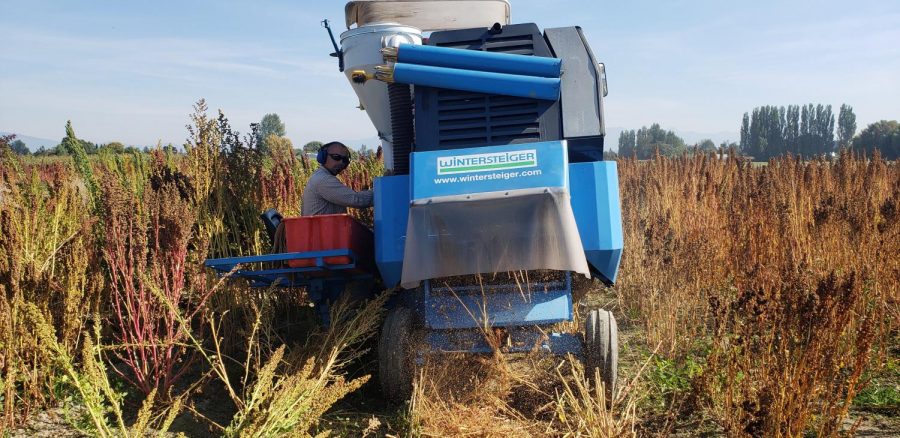Symposium to allow quinoa enthusiasts learn from leaders in the field
Organizers expect more than 1,000 people to participate worldwide
COURTESY OF CEDRIC HABIYAREMYE
There will be several presentations on different quinoa-related topics during the International Quinoa Research Symposium. The presentations will include ways to cook, grow and market quinoa.
July 23, 2020
Within the last several years, quinoa has become a household grain after being a rather unknown crop in many parts of the world. Researchers will call more attention to the crop by sharing cutting-edge research at the second International Quinoa Research Symposium.
The symposium will spotlight how quinoa contributes to food security and health and nutrition. Presenters will speak about the sustainable production of the crop, said Cedric Habiyaremye, WSU research associate and symposium co-organizer.
This year, the symposium will be held online because of the pandemic. While organizers were initially concerned about hosting it virtually, they realized it allows for a larger international audience, Habiyaremye said.
Kevin Murphy, associate professor for WSU’s Department of Crop and Soil Sciences and leader of WSU’s Sustainable Seed Systems Lab, said the organizers expect more than 1,000 people to attend.
The symposium is not only for quinoa research leaders worldwide but for anyone interested in the crop. Habiyaremye said organizers would like local government officials to learn about the rising investment in the crop.
Around 50 speakers will present. Registrants will be able to watch pre-recorded talks, poster presentations and supplementary videos. Most speakers will be available for a live Q&A, Murphy said.
There will also be recorded field walks, Habiyaremye said.
“There’s a lot to learn here. I think that’s one of the things I’m most excited about is getting such a great group of speakers,” Murphy said. “These are really the leaders in quinoa research, farming and sociology worldwide.”
Many of the presenters are native Spanish speakers, but everything will be translated into both English and Spanish, he said.
Indigenous speakers from the Andes Mountains in South America will talk about quinoa’s history, including information about how they and their ancestors have grown and eaten quinoa, Murphy said.
Speakers from companies such as Ardent Mills and Lundberg Family Farms will talk about marketing quinoa, he said.
There will be presentations dedicated to growing quinoa. Farmers worldwide will offer their perspectives, Murphy said, including the best soils for planting and information about its different varieties.
A Chilean chef and a North American chef will show ways to cook quinoa, he said.
Murphy said the scientific aspects of the crop will also be discussed, such as the genetic sequencing done on quinoa’s relatives grown in North and South America.
Quinoa originated in the Andes and has grown there for more than 6,000 years, he said.
However, it has only recently been planted in many other countries worldwide for its ability to address issues of food insecurity, Habiyaremye said. Quinoa, a nutrition powerhouse, has all nine essential amino acids that make up a complete protein.
“Quinoa is a crop that actually has a higher adaptability in a different environment,” Habiyaremye said. “It performs well in places where most other crops fail to perform or to produce yields.”
The crop can be used in many products, from pasta to breakfast cereals, Murphy said.
“That’s another thing that’s really been on the forefront of the research community is figuring out how to best use quinoa and which varieties work best for which products,” Murphy said.
There has been a lot of recent research involving quinoa, and people are trying to learn as much about it as they can, he said.
The symposium is hosted by the WSU Sustainable Seed Systems Lab, the WSU Food Systems Program as well as the QuinoaLab, which is from the Chilean university Pontificia Universidad Católica de Chile, Murphy said.
The event will occur on Aug. 17-19. Registration is free and ends Aug. 10. Presentations will be posted on the Sustainable Seed Systems Lab YouTube channel after the symposium.









